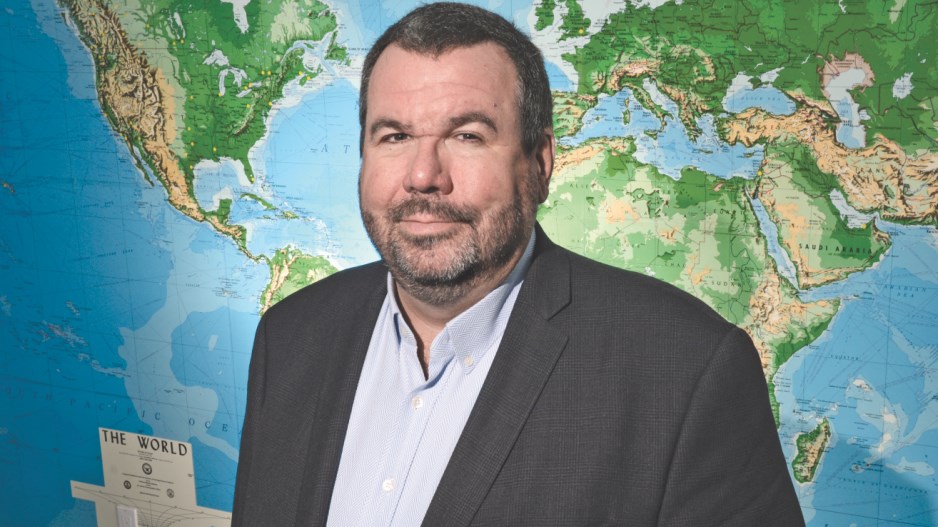Afghanistan, northern Iraq, Guatemala, Nigeria, Venezuela, Mexico – these are some of the most dangerous regions on Earth.
Yet the lure to do business in those areas can be compelling, rich as they are in natural resources.
So just how unstable is the West African nation of Burkina Faso these days, now that a military coup has taken place? And what’s the situation on Ebola there?
These are the kinds of risks CKR Global specializes in assessing for Canadian businesses operating abroad.
The Coquitlam-headquartered security company is one of the few that offer international security and intelligence services. Not surprisingly, its biggest customers are mining, oil and gas companies.
“In the last 18 months, we’ve been in 20 different countries,” said Mark LaLonde, CKR Global’s director of international operations.
When a resource company is planning to do exploration work in Africa, South America or the Middle East, it will often hire a company like CKR Global to go there to do a risk analysis.
“A lot of what we do is the initial assessment of – for lack of a better term – what could go bump in the night,” LaLonde said.
Typically the company sends a security expert – who often comes from a military background – to do an on-the-ground assessment and work with local police and private security firms.
But the company doesn’t just assess physical threats from terrorists, drug cartels or civil unrest. It looks at factors ranging from road conditions and local medical facilities to government corruption.
CKR Global also assesses a country’s laws to determine the level of protection a company can expect in the event of a legal dispute.
The company will also help secure local security forces and provide them with training and operational procedures that adhere to the Voluntary Principles on Security and Human Rights, an international standard developed by the oil and gas industry and Amnesty International.
A number of mining companies have gotten black eyes when the local security forces they employed injured or killed protesters.
In June, for example, several Guatemalans who claim they were shot and injured with rubber bullets fired by security forces working for Vancouver’s Tahoe Resources Inc. (TSX:THO) at its Escobal silver mine filed a civil action against the company in BC Supreme Court.
“We help clients mitigate the reputational damage and liability by having their local vendors comply with [approved security procedures] and prove compliance,” LaLonde said.
CKR Global has provided security and intelligence service in some of the most dangerous war zones of the Middle East, including Afghanistan, Pakistan and Kurdistan (northern Iraq).
The company spent four years in Kurdistan overseeing local security forces for a client.
“We helped them select a local Iraqi guard company,” LaLonde said, “but we wrote the operational policies and procedures for that guard company.”
One risk that companies doing business overseas could face, but which they might overlook, is bribery and corruption charges.
Gift giving and outright bribery are part of doing business in some countries, and the lines between a gift and a bribe can be blurry.
Crossing that line can damage reputations and net hefty fines, as Calgary-based oil company Niko Resources Ltd. (TSX:NKO) discovered in 2011, when it was fined $9.5 million for bribing a government official in Bangladesh under Canada’s Corruption of Foreign Public Officials Act.
“So our clients want to know, if they’re overseas, what’s the corruption environment, how do they mitigate that risk?” LaLonde said. “You have to make sure that your agents – the third parties working for you – are not bribing in your name, and where do you draw the line?”
Even companies doing business domestically can benefit from threat assessments. Paladin Security, for example, works with companies in Canada to assess their ability to respond to and survive a wide range of threats to their business.
Paladin does emergency preparedness and business continuity analysis based on worst-case scenarios – from catastrophic events like fires and earthquakes to workplace shootings – to assess a business’ resilience.
“Businesses need to know that they can withstand challenges and issues like that and make sure that they can open their doors the next day,” said Paladin CEO Ashley Cooper.
“I don’t care whether you’re the mom-and-pop grocery store, all the way up to the largest corporation, you need to have plans in place.”




